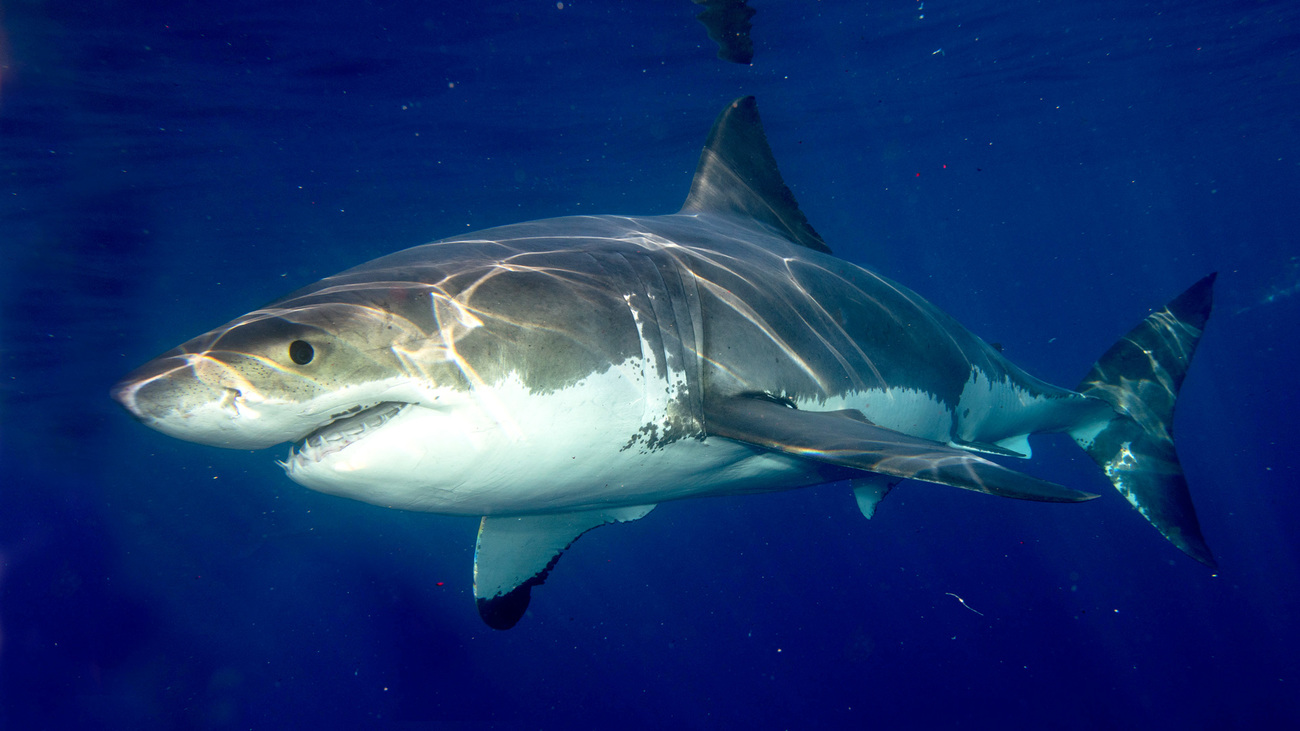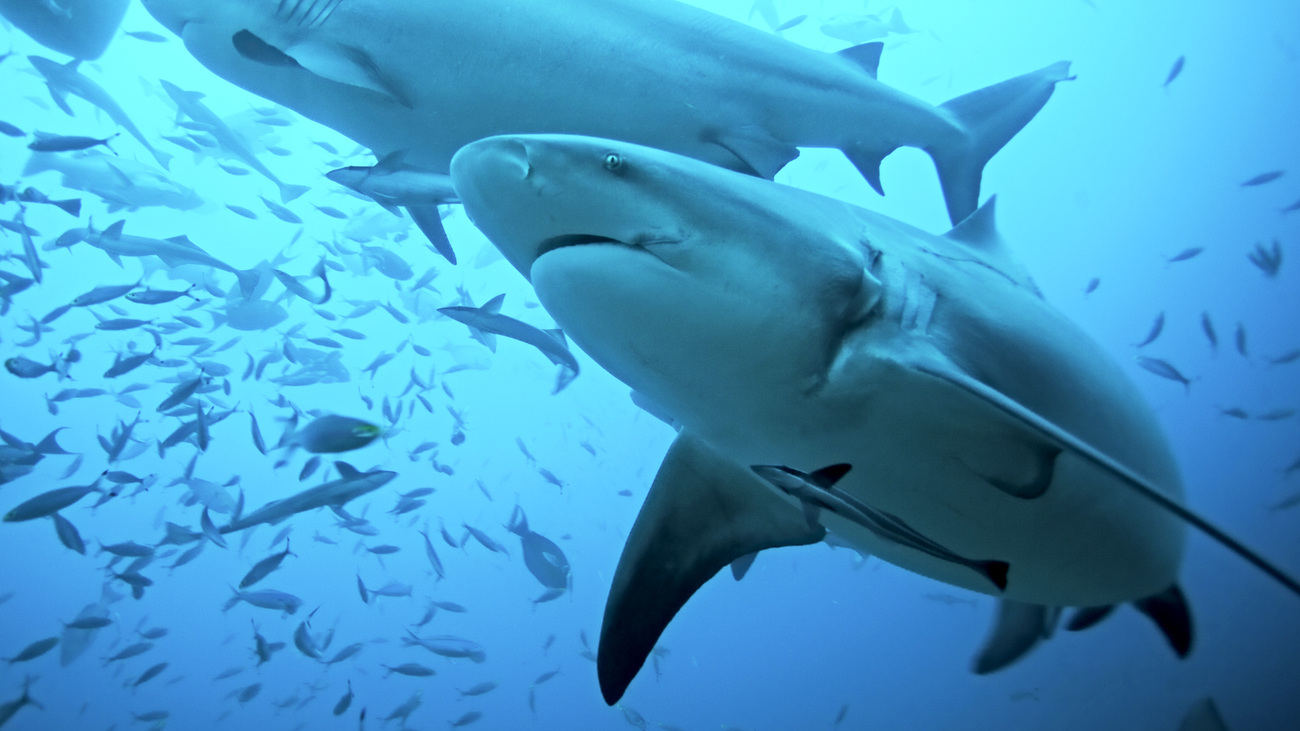Barbara Slee
50 years after Jaws: setting the record straight about sharks
50 years after Jaws: setting the record straight about sharks

This is just plain false, but it has unfortunately had lasting ramifications for marine conservation around the world. Two months after its release, as the film made more money than any other movie ever had, fears among the public grew of the real sharks that inhabited coastal waters. This has tasked conservationists with combatting misinformation, quelling fears, and raising awareness about sharks’ ecological importance for the past 50 years.
But it’s not all bad news—Jaws’ popularity has also sparked people to become interested in sharks in a way they never were before.
How common are shark attacks, really?
Every time a shark is spotted within a beach’s vicinity, it sparks public concern and curiosity. But even if sharks are increasingly approaching shores due to climate impacts, shark attacks are still extremely rare.
On average 64 shark bites are recorded annually worldwide. Of these, 9% are fatal—so, about six deaths result from sharks each year.
People are not a part of sharks’ regular diet. They’d much rather feed on fish and marine mammals. They are known to approach humans out of curiosity or confusion—occasionally leading to accidental attacks.
So many other everyday things are more likely to be fatal—cars, dogs, and even lightning. In fact, you’re more than 75 times more likely to be killed by a lightning strike than a shark. Fireworks, causing about 11 deaths per year, are also more dangerous.
Humans are sharks’ biggest predator—not the other way around
In contrast to the minimal threat posed by sharks to humans, humans kill an estimated 100 million sharks per year in commercial fisheries alone—which averages to around 190 sharks every minute. Not all of these are ‘intentional’, according to the fishermen—in fact, about three-quarters of sharks are caught and registered as so-called bycatch. However, certain products like shark fins yield such high profits that there are serious doubts about whether bycatch is the real issue.
Overfishing of sharks—their number-one threat—has been driven in part by a fear that sharks are out to get us. But it’s also caused by a rising demand for shark and ray meat, which has doubled since 2005. Since the 1970s, shark and ray populations have fallen by more than 70%.

Shark hunting supplies a global trade for their meat, skins, fins, liver oil (which is used in cosmetics), and even small sharks’ bodies, which are in some places used as chew toys for pets. Many rural communities depend on sharks for food and income.
But it’s not all bad news—China banned shark finning, the practice of hunting sharks for their fins and leaving them to die in the ocean, in 2019, and demand for fins has declined overall in the past 20 years. In the US, great white shark hunting became illegal in the early 90s.
Thanks to the advocacy of IFAW and other conservationists, a groundbreaking decision in 2022 gave nearly 100 shark and ray species increased protections under CITES, the international treaty on wildlife trade. But our work isn’t done. This November, parties to the treaty will convene for COP20, reviewing new proposals to upgrade protections for more than 70 different shark and ray species. Proposed rules include a complete ban on commercial international trade in whale sharks, oceanic whitetip sharks, and manta and devil rays.
Overfishing has driven the decline of more than 90% of shark species—today, more than a third of shark and ray species are threatened with extinction. These legal protections are vital for protecting sharks and the marine ecosystems they inhabit.
How to stay safe around sharks
Shark attacks are rare, bites are hardly ever life-threatening, and you’re not likely to encounter a shark on an average day at the beach. But if you’re still spooked by Jaws, here are some tips for avoiding shark encounters.
- Swim in groups—sharks are more likely to bite a solitary individual
- Stay close to the shore, where you’ll be closest to lifeguards
- Avoid swimming at night, when sharks are most active
- Don’t enter the ocean if you’re bleeding
- Take off shiny jewelry—when it reflects light, it resembles fish scales
- Avoid waters with discharges, sewage, and fishing activities
- Use extra caution in murky waters
- Don’t allow pets in the water
- Never get close to or attempt to intimidate a shark
Even if you aren’t afraid of sharks, it’s always important to respect wildlife. Never attempt to approach or touch a wild animal, even if you think it is friendly or harmless. Any animal—not just a shark—can feel threatened and harm you.
Making the ocean safer for sharks
Steven Spielberg, the director of Jaws, has stated that while he doesn’t fear getting eaten by a shark, he is worried about the impact this film has had on shark populations and their public perception. This isn’t just an issue for sharks; it’s an issue for people and for the whole planet. Humans rely on healthy ocean ecosystems just like sharks—for food sources, the oxygen we breathe, and climate regulation.
That’s why IFAW is dedicated to making the ocean a safer home for all animals—sharks included. They’re not the cutest or fuzziest of animals, which means they don’t receive the attention or protections they deserve. So, if you are planning on (re-)watching Jaws this summer, and you hope that real sharks will still swim in our oceans long into the future, consider donating to support shark conservation.
Related content
Our work can’t get done without you. Please give what you can to help animals thrive.